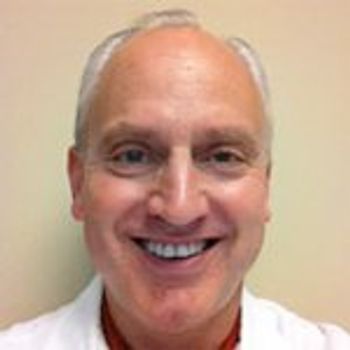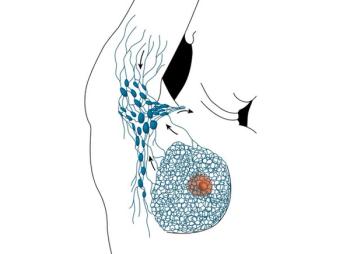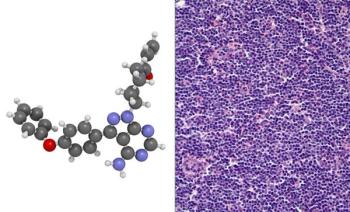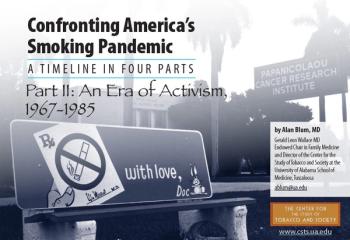
The FDA has approved the first single-dose intravenous NK1 receptor antagonist, fosaprepitant dimeglumine (Emend), for the treatment of nausea and vomiting that can accompany the use of moderately and highly emetogenic chemotherapy.

Your AI-Trained Oncology Knowledge Connection!


The FDA has approved the first single-dose intravenous NK1 receptor antagonist, fosaprepitant dimeglumine (Emend), for the treatment of nausea and vomiting that can accompany the use of moderately and highly emetogenic chemotherapy.

Despite clinical trial evidence and recommendations that certain older breast cancer patients can forego radiation therapy after lumpectomy, most older patients continue to receive radiation therapy, according to a new study.

The use of a standard yearly physical examination to screen for thyroid cancer among high-risk survivors of childhood and young adult cancers resulted in a negative predictive value of 100% for clinically relevant thyroid cancer and a significant cost savings compared with regular ultrasound screening.

There was no significant difference in the decline in IQ score over time between pediatric brain tumor patients treated with either photon radiation or proton beam radiation therapy, according to a new study.

Survivors of thyroid cancer are at an increased risk for developing a second cancer, according to the results of a recently published study.

More than 15% of men and women over the age of 65 may have received breast or prostate cancer screening not recommended by current guidelines.

Breast cancer survivors with estrogen receptor (ER)-positive disease had a lower annual risk of recurrence within the first 5 years after diagnosis, though these patients then had higher rates than ER-negative patients after 5 years.

A short-course of preoperative radiation therapy plus consolidated chemotherapy was shown to be as effective as standard preoperative chemoradiation in the treatment of locally advanced rectal cancer.

Regular ultrasound surveillance of the thyroid revealed that about 7% of adult childhood cancer survivors who had radiation to the head or neck subsequently developed thyroid cancer.

Adult survivors of childhood astroglial tumors with significant vision loss are more likely to suffer various psychological and socioeconomic impacts such as unemployment.

How arduous is it to transform a typical practice into a community oncology medical home? Let’s compare the characteristics of the ideal community oncology medical home as defined by Innovative Oncology Business Solutions with our practice’s current habits.

A published statement by ASCO lays out concerns about the ways in which clinical pathways, a system designed to improve the quality of care cancer patients receive, are being utilized within the US healthcare system.

In this Q&A we examine Right-to-Try drug laws and discuss tips for clinicians with terminally ill patients who have exhausted all their therapy options.

Most adolescent and young adult survivors of Hodgkin lymphoma did not receive the recommended care within the first year post-treatment, according to a study.

A randomized trial showed that personalized care plans and one-on-one counseling can improve adherence to survivorship plans among low-income breast cancer survivors.

An Egyptian study found that bladder cancer patients who underwent radical cystectomy had better local recurrence-free survival with adjuvant radiotherapy and chemotherapy combined, compared with chemotherapy alone.

The use of a reduced preparation CT colonography increased participation in colonography as a method of population screening for colorectal cancer, according to the results of a large Italian study.

A three-arm trial found that one hypofractionation radiotherapy regimen was non-inferior to conventional RT for intermediate-risk prostate cancer patients.

A study of female cancer survivors found that almost half experience CIPN symptoms years after completing their cancer treatment.

A hypofractionated radiotherapy regimen was found to be noninferior to conventional fractionation for low-risk prostate cancer patients in a new randomized phase III trial.

In this slide show we take a look back at the past year in cancer news and research, with some of our most read stories of 2015 including new immunotherapy approvals, a look at the overtreatment of DCIS, a study on fish oil and chemoresistance, and more.

This slide show highlights the 2015 FDA approvals of cancer treatments, which included therapies for melanoma, RCC, sarcoma, and lung, breast, and pancreatic cancers, as well as various hematologic malignancies.

More than half of hematologists providing care to patients with hematologic malignancies reported initiating end-of-life conversations too late in the course of the patient’s disease.

Administering pharmacological prophylaxis against venous thromboembolism (VTE) did not decrease the occurrence of VTE in patients treated with robotic partial nephrectomy, and it did not increase the rate of hemorrhagic events.

Former President Jimmy Carter, who is being treated for metastatic malignant melanoma, announced that a follow-up scan revealed that four brain metastases were gone. Several headlines described the president as being “cancer free,” a choice of words that must be interpreted with caution.

Patients diagnosed with non-small-cell lung cancer (NSCLC) at a younger age are far more likely to harbor a targetable genomic alteration than older patients.

Dr. Alan Blum and Cancer Network have partnered to assemble a four-part slideshow series addressing the history of America’s smoking pandemic. Part 2 highlights the rise of tobacco awareness, and anti-smoking activism and legislation.

This review outlines the diagnostic and therapeutic challenges associated with the increased number of screen-identified indeterminate lung nodules, highlighting currently recommended follow-up and management algorithms, as well as the various methods of nodule localization, tissue diagnosis, and definitive local therapeutic modalities.

This article provides an overview of the current state of knowledge pertaining to exercise modulation of the inflammation-immune axis in cancer. The current evidence suggests that exercise may be a promising adjunctive strategy that can favorably alter numerous components of the immune system, which, in turn, may modulate tumorigenesis.

Survivorship care is “a distinct phase of care for cancer survivors that includes four components: (1) prevention and detection of new cancer or recurrent cancer; (2) surveillance for cancer spread, recurrence, or second cancers; (3) intervention for consequences of cancer and its treatment; and (4) coordination between specialists and primary care providers to ensure that all of the survivor’s health needs are met.”